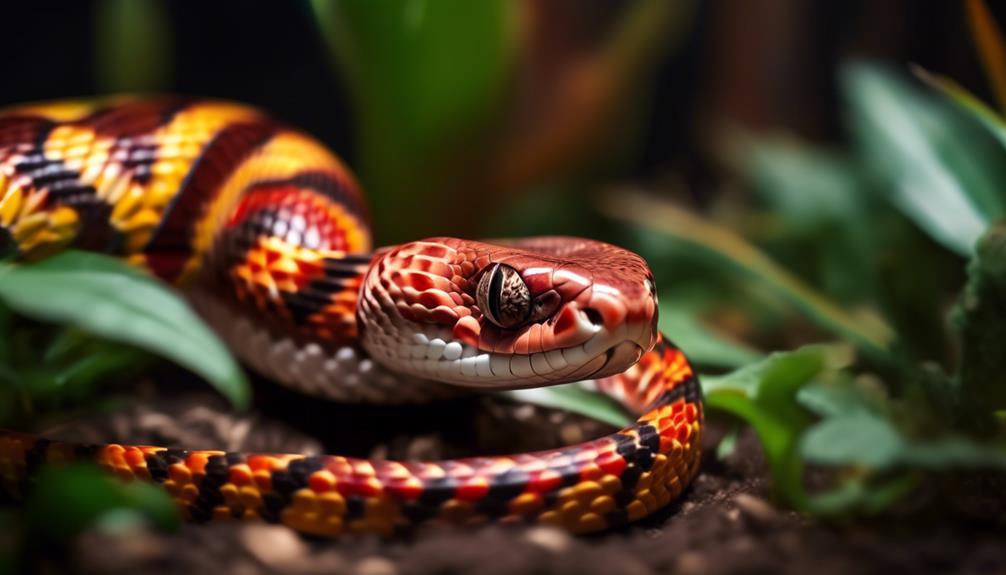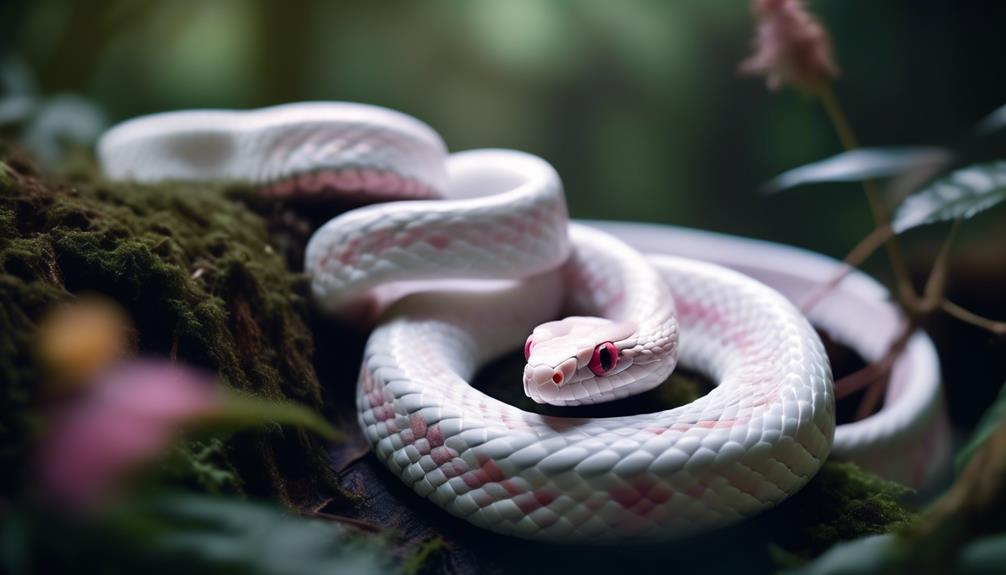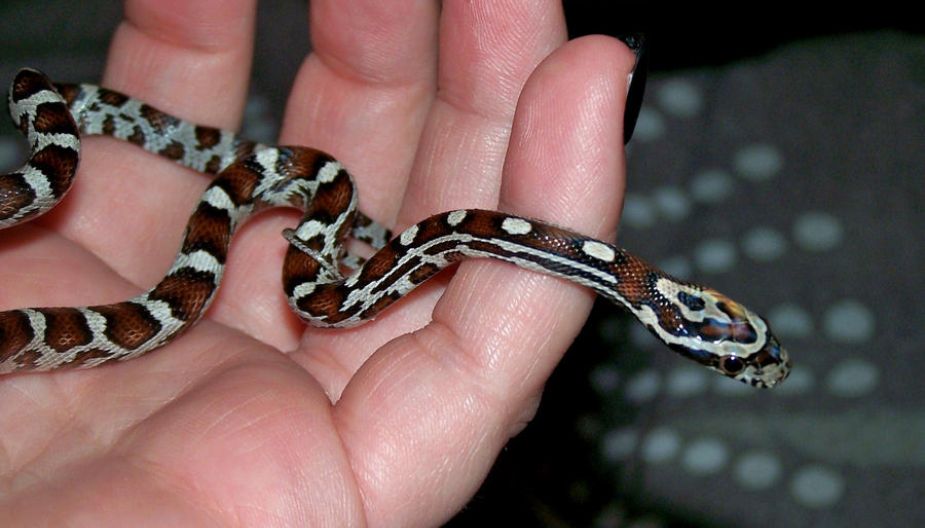You may think of your corn snake as a low-maintenance pet, but just like any other animal, they can face health issues that require attention. From respiratory infections to digestive problems, there are common ailments that can affect your slithery friend.
But fear not, with the right knowledge and care, you can ensure that your corn snake stays healthy and happy. Understanding the signs and symptoms of these ailments is crucial to providing the best care for your pet.
So, how can you spot these issues early and take proactive steps to keep your corn snake in top shape?
Respiratory Infections
To prevent respiratory infections in your corn snake, ensure that their enclosure provides adequate ventilation and maintains proper humidity levels. Corn snakes are prone to respiratory issues when kept in environments with poor air circulation and improper humidity. It's crucial to monitor the humidity levels in the enclosure, aiming for 40-60%.
Inadequate ventilation and high humidity can lead to the growth of bacteria and fungi, which can cause respiratory infections in your snake.
Preventative care is the most effective approach to safeguarding your corn snake against respiratory infections. Regularly clean the enclosure and remove any feces or uneaten food to maintain a clean and hygienic environment. Additionally, provide a well-balanced diet and ensure that your snake has access to clean water at all times.
If you suspect that your corn snake may have a respiratory infection, it's essential to seek veterinary care promptly. Treatment options may include antibiotics, nebulization therapy, and supportive care to help your snake recover. Early intervention is crucial in managing respiratory infections and preventing further complications.
Skin and Scale Issues
Maintain the health of your corn snake's skin and scales by regularly inspecting for any signs of shedding issues, such as retained eye caps or incomplete sheds. Proper shedding is crucial for your snake's well-being, as incomplete sheds can lead to a range of skin and scale issues.
When your corn snake is preparing to shed, you may notice a change in its behavior, such as decreased appetite or increased restlessness. During the shedding process, humidity levels in the enclosure should be elevated to aid in the shedding process.
If your snake experiences difficulties shedding, providing a shedding box with damp sphagnum moss can help facilitate the process. Additionally, inspect your snake's skin for any signs of fungal infections, which can manifest as discolored, patchy, or blistered areas on the skin. If you notice any abnormalities, it's essential to seek veterinary assistance promptly to address any potential skin and scale issues before they escalate.
Regular monitoring and proactive care are key to keeping your slithery friend healthy and thriving.
Digestive Problems
Inspect your corn snake's feces regularly for any signs of digestive problems, such as undigested food or abnormal consistency, as these can indicate underlying health issues that require prompt attention. Digestive problems in corn snakes can be caused by various factors, including improper diet, inadequate temperatures, or stress. If you notice any signs of digestive issues, it's crucial to take action promptly to prevent further complications.
Dietary adjustments play a vital role in preventing digestive problems in corn snakes. Ensure that you're providing the appropriate prey size for your snake's age and size. Additionally, offering a varied diet of mice, rats, and chicks can help prevent digestive issues caused by nutritional deficiencies. It's important to maintain proper temperatures and humidity levels in the snake's enclosure, as inadequate environmental conditions can lead to digestive problems.
Preventive care is essential for maintaining your corn snake's digestive health. Regularly monitor your snake's feeding habits and feces to identify any potential issues early on. Moreover, providing a stress-free environment and handling your snake with care can contribute to its overall digestive well-being. By implementing these preventive measures and making necessary dietary adjustments, you can help keep your slithery friend healthy and thriving.
Parasitic Infestations
Regularly monitor your corn snake for signs of parasitic infestations, such as changes in behavior, appetite, or appearance, as these can indicate the presence of internal or external parasites that require prompt veterinary attention. Preventing parasitic infestations is crucial for maintaining your snake's health.
Internal parasites like nematodes and coccidia can cause weight loss, diarrhea, and lethargy. External parasites such as mites can cause irritation, anemia, and stress. To identify parasites, your veterinarian may conduct fecal tests and skin scrapings. Treatment often involves deworming medications for internal parasites and reptile-safe pesticides for external parasites.
Managing parasitic infestations also involves maintaining a clean and hygienic habitat. Regularly clean and disinfect your snake's enclosure, furnishings, and water bowl. Quarantine new snakes before introducing them to your established collection to prevent the spread of parasites. Additionally, maintaining optimal environmental conditions, such as temperature and humidity, can help prevent parasitic infestations.
If you suspect a parasitic infestation, seek veterinary care promptly to ensure proper diagnosis and treatment. By staying vigilant and proactive, you can help your slithery friend stay healthy and free from parasitic infestations.
Behavioral Abnormalities
To assess behavioral abnormalities in your corn snake, carefully observe its activity patterns, response to stimuli, and interactions with its environment.
Handling stress is crucial for the well-being of your snake. Signs of stress may include excessive hiding, hissing, or striking.
Environmental enrichment is essential to prevent behavioral abnormalities. Ensure your snake's enclosure has appropriate hiding spots, climbing structures, and a variety of substrates to explore. Lack of environmental enrichment can lead to boredom and stress, resulting in abnormal behaviors such as pacing or lack of appetite.
Additionally, consider the frequency and duration of handling sessions. Overhandling can cause stress and anxiety in corn snakes, leading to defensive behaviors and decreased activity. On the other hand, inadequate handling can result in under-socialization and increased stress when handling does occur.
Monitoring your corn snake's behavior closely and providing a stimulating environment can help prevent and address potential behavioral abnormalities, ensuring your slithery friend remains healthy and happy.
Conclusion
In conclusion, keeping your corn snake healthy requires vigilance and care. By monitoring for respiratory infections, skin and scale issues, digestive problems, parasitic infestations, and behavioral abnormalities, you can ensure your slithery friend stays in optimal health.
Remember to consult a veterinarian specialized in reptile care if you notice any concerning symptoms. With proper attention and prompt treatment, your corn snake can live a long and thriving life.
Stay tuned for more tips and advice on maintaining a healthy pet snake.


